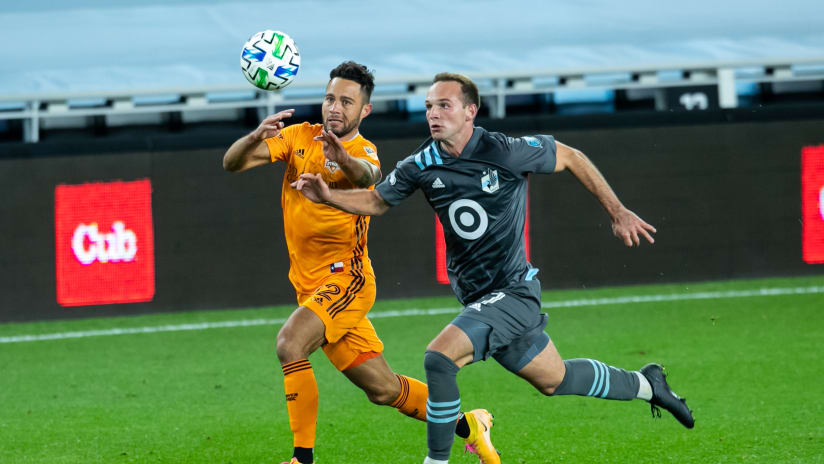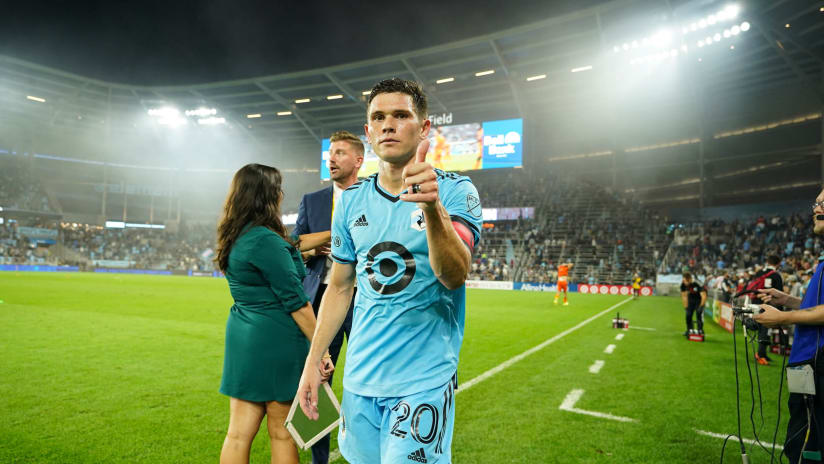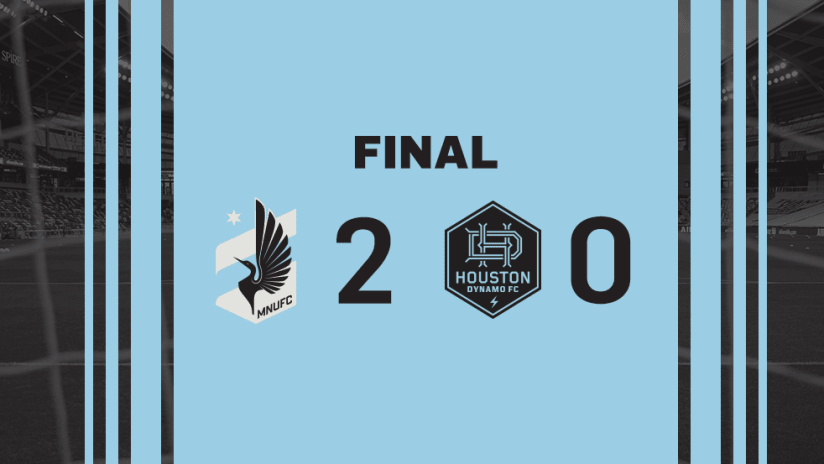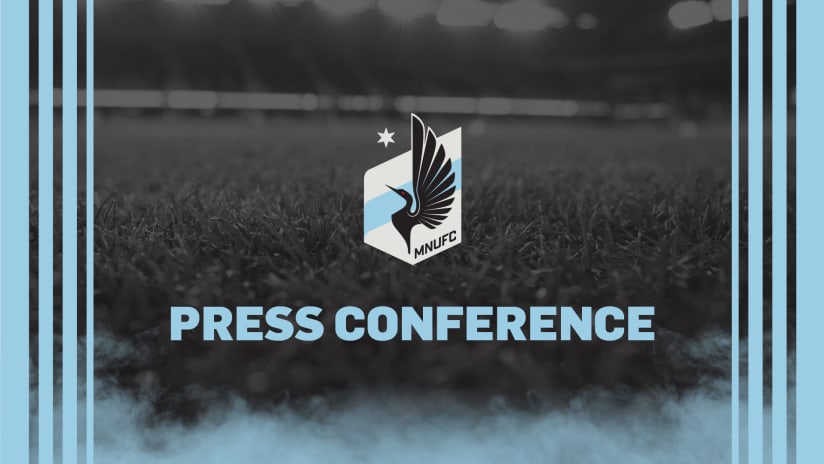- REY, NOW YOU’RE AN ALL-STAR: When MLS dropped the full 28-man roster for the All-Star Game presented by Target, it should have come as no surprise to find Minnesota United’s Emanuel Reynoso included. The Argentine has been the Loons’ midfield maestro this season, leading the team in key passes (49) despite increased attention from opposing defenses, which have fouled him 46 times — fifth in the league. But what about past MLS All-Stars? The club’s first were Francisco Calvo and Darwin Quintero in 2018. Quintero deserved the nod simply based on the immediate impact he made on the team in a sterling July that included Minnesota’s first-ever hat trick in MLS. Calvo was the team’s captain and leader of a defense that ended up allowing a record 71 goals a year after giving up a then-record 70 the year before. But he was nice with the Maradonas, so let’s call it a wash. In 2019, first-year right back Romain Metanire went to the All-Star Game. Another deserving candidate, he was instrumental in Minnesota’s defensive turnaround that year and contributed heavily to the offense, especially in the early going. But it’s no knock against Metanire to say there’s something a little more exciting about getting an attacking player into the game, especially this year when the MLS All-Stars will face off against the Liga MX All-Stars. Sure, it’s still an exhibition, but there’s reason to hope that the added weight of a little nationalistic pride could provide just the bite a friendly needs to make it fun and enticing. It remains to be seen exactly how Reynoso will be used by Head Coach Bob Bradley, but given that he’s a progressive player who makes everyone else’s job easier, don’t be surprised if he finds himself dealing to the likes of Gustavo Bou and Raul Ruidiaz in critical moments.
- DYNAMO MONEY, DYNAMO PROBLEMS: When MNUFC came into MLS in 2017, the Houston Dynamo featured a deadly three-pronged attack led by wingers Alberth Elis and Romell Quioto on either side of forward Mauro Manotas. While they could be a little shaky defensively, especially on the road, in the deep, thick heat of Houston they tore teams limb from limb. All of the above players have since departed — often garnering sizable transfer fees — with Elis in Portugal, Quioto with CF Montréal and Manotas in Mexico. The Dynamo have cycled through a few different attacking looks, including a couple former Loons in Darwin Quintero and Christian Ramirez, but while their homefield advantage remains intact, they’ve missed the playoffs the last three years, slipping from ninth to 10th to 12th over that span. Thus far, Houston are one of five teams without a road win in the league and have not won in 10 games following Wednesday night’s loss to Austin FC. When Tab Ramos was hired as head coach in 2019, he came from the U.S. U20 national team and it seemed like Houston were aiming to tap into the robust youth soccer market in Texas. The disruptions over the last 18 months caused by COVID-19 have not made it easy for Ramos to establish a tone and style with the Dynamo, so the identity of the team remains a work in progress. Saturday night will be Minnesota’s first time facing Houston this year, and you can expect Head Coach Adrian Heath to get his squad to press the homefield advantage early on not let the visitors get any chance to self-actualize.
- IS THE SEASON HALF-EMPTY OR HALF-FULL?: Saturday’s game against Houston will be Minnesota’s 17th this season and thus the mathematical halfway point of the 2021 regular season. Over the course of nine home games and eight away games, the Loons will have gotten 23, 24 or 26 points. To go back to the most recent normal season, Minnesota finished with 53 points in 2019, good for fourth in the Western Conference. The game against Houston is not necessarily a particularly pivotal one, and it’s hopefully unlikely MNUFC suffers another stretch like the four losses that opened the season, but if the Loons end up with 46 points, that would have only been good enough for eighth in 2019. Fifty-two points would have gotten them the sixth seed that year. For comparison, their current 1.44 points per game pace would have seen them just squeaking into eighth place last season. The good news is that over their last 12 games, Minnesota have averaged considerably more than 1.44 points per game, taking 22 points overall and establishing a 1.83 points per game pace. If they sustain that over their final 18 games, that’s an even 33 points, meaning they would finish with 56 points — dead even with the Seattle Sounders’ finish in 2019. What does it all mean? Probably nothing. Minnesota’s start to the season was far worse than it should have been and their 12-game streak with one loss will not continue indefinitely. But it is some evidence in favor of the idea that the Loons have essentially righted the ship and should be expected to overcome that poor start and punch their third straight ticket to the postseason.





